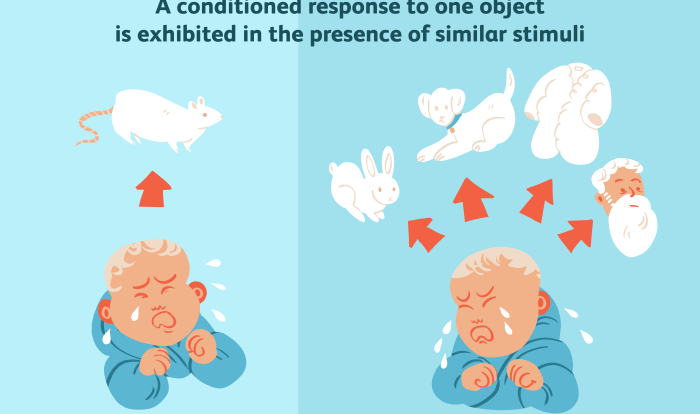Criminal behavior: a psychological approach 12th edition pdf free – Welcome to the 12th edition of “Criminal Behavior: A Psychological Approach,” the definitive guide to understanding the complexities of criminal behavior. This comprehensive text delves into the latest research and theories, providing a thorough exploration of the psychological factors that influence criminal activity.
Through a multidisciplinary lens, this book examines the biological, psychological, and social underpinnings of crime, offering a nuanced understanding of the motivations and behaviors of offenders. With its engaging writing style and wealth of case studies, this edition promises to captivate readers and deepen their understanding of this fascinating field.
Introduction to Criminal Behavior

The psychological approach to understanding criminal behavior focuses on the mental processes and psychological factors that contribute to criminal behavior. It examines the cognitive, emotional, and behavioral patterns that are associated with criminal activity, and seeks to identify the psychological mechanisms that underlie criminal behavior.
The history of the psychological approach to criminal behavior can be traced back to the late 19th century, with the work of Cesare Lombroso and Enrico Ferri. Lombroso proposed that criminals were born with certain physical and psychological characteristics that predisposed them to crime, while Ferri argued that social and environmental factors also played a role in criminal behavior.
Theories of Criminal Behavior
There are a number of different theories of criminal behavior, each of which offers a unique perspective on the causes of crime. Some of the most influential theories include:
- Biological theoriesfocus on the role of genetics and other biological factors in criminal behavior. These theories argue that certain genetic traits, such as low intelligence or high levels of testosterone, can increase the risk of criminal behavior.
- Psychological theoriesfocus on the role of psychological factors in criminal behavior. These theories argue that certain psychological traits, such as aggression, impulsivity, or a lack of empathy, can increase the risk of criminal behavior.
- Social theoriesfocus on the role of social factors in criminal behavior. These theories argue that certain social conditions, such as poverty, unemployment, or discrimination, can increase the risk of criminal behavior.
Risk Factors for Criminal Behavior

There are a number of risk factors that have been identified as being associated with an increased risk of criminal behavior. These risk factors include:
- Biological factors, such as low intelligence, high levels of testosterone, and certain genetic traits
- Psychological factors, such as aggression, impulsivity, a lack of empathy, and mental illness
- Social factors, such as poverty, unemployment, discrimination, and exposure to violence
It is important to note that not all individuals who have these risk factors will go on to commit crimes. However, the presence of these risk factors can increase the likelihood of criminal behavior.
Assessment of Criminal Behavior: Criminal Behavior: A Psychological Approach 12th Edition Pdf Free

The assessment of criminal behavior is a complex process that involves a variety of methods. These methods include:
- Psychological testing: Psychological testing can be used to assess a variety of psychological factors that are associated with criminal behavior, such as aggression, impulsivity, and a lack of empathy.
- Interviewing: Interviewing can be used to gather information about an individual’s history, motivations, and current circumstances. This information can be used to assess the risk of criminal behavior and to develop a treatment plan.
- Observation: Observation can be used to observe an individual’s behavior in a variety of settings. This information can be used to assess the risk of criminal behavior and to develop a treatment plan.
Treatment of Criminal Behavior
There are a variety of different treatment approaches for criminal behavior. These approaches include:
- Cognitive-behavioral therapy: Cognitive-behavioral therapy (CBT) is a type of therapy that focuses on changing the thoughts and behaviors that are associated with criminal behavior. CBT has been shown to be effective in reducing criminal behavior.
- Psychodynamic therapy: Psychodynamic therapy is a type of therapy that focuses on uncovering the unconscious motivations that drive criminal behavior. Psychodynamic therapy has been shown to be effective in reducing criminal behavior.
- Medication: Medication can be used to treat the psychological symptoms that are associated with criminal behavior, such as aggression, impulsivity, and a lack of empathy. Medication has been shown to be effective in reducing criminal behavior.
Prevention of Criminal Behavior
There are a number of different strategies that can be used to prevent criminal behavior. These strategies include:
- Early intervention: Early intervention programs can help to identify and address the risk factors for criminal behavior in children and adolescents. These programs have been shown to be effective in reducing criminal behavior.
- Community programs: Community programs can help to provide support and resources to individuals who are at risk of criminal behavior. These programs can include job training, housing assistance, and mentoring programs. Community programs have been shown to be effective in reducing criminal behavior.
Question & Answer Hub
What are the key theories of criminal behavior?
This book explores various theories, including biological, psychological, and sociological perspectives, that attempt to explain the causes of criminal behavior.
How can we assess criminal behavior?
The text discusses different methods used to assess criminal behavior, such as psychological testing, interviewing, and risk assessment tools.
What are the effective treatment approaches for criminal behavior?
The book reviews evidence-based treatment approaches, including cognitive-behavioral therapy, psychodynamic therapy, and pharmacological interventions.
How can we prevent criminal behavior?
The text emphasizes the importance of early intervention and community programs in preventing criminal behavior, highlighting strategies for reducing risk factors and promoting prosocial development.

